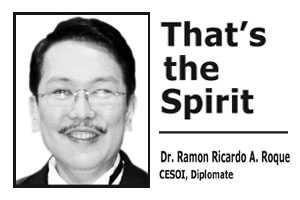DEMOCRACY literally means “the rule or power of the people.” In a representative democracy, such as the one we have in the Philippines, the power of the people is fundamentally wielded through votes during elections for government leaders.
An election is a democratic exercise that puts citizens, particularly those who have been given the responsibility to vote, in equal footing as each has only one vote regardless of economic status.
The rule of the majority is also a fundamental principle that characterizes democracy. The voice of the greater number of citizens shall prevail. In elections, “majority” does not necessarily mean 50 percent plus one as it, in many cases, also means a candidate getting more votes than other candidates.
It is sad that the reactions of some Filipinos on the results of the May 13, 2019 elections, just like similar reactions on the results of previous elections, reflect, at the very least, non-understanding of the real essence of democracy.
Calling others who voted for a candidate “bobo” simply because they voted for a candidate who you believe is not “right” for an elective position is both out of line and an illustration that you do not understand the real essence of democracy.
In a democracy, no one person or group has a monopoly of discernment for the “right” candidates who should occupy leadership positions in our government.
The votes of the greater number of citizens define who are “right” for government leadership positions from qualified candidates. Qualifying candidates is done in accordance with law as the “rule of law” is also a fundamental principle of democracy.
The “bobo” tag by some individuals and groups does not only refer to the mental capabilities of the concerned voters but also to the capabilities of the concerned candidates in performing their jobs as government leaders.
Election is a democratic exercise where people choose the candidates to whom they want to entrust their power. The capabilities of candidates in terms of knowledge and skills are only among the considerations of the people. At the end of the day, a vote for a particular candidate is an expression of trust. When a candidate who has better skills or more knowledge is not elected, it simply means that he or she did not earn the trust of the majority of the people.
In a democracy, there are really no “bobo” voters, there are only those who really do not understand the real meaning and essence of democracy.


